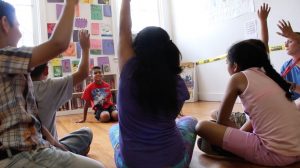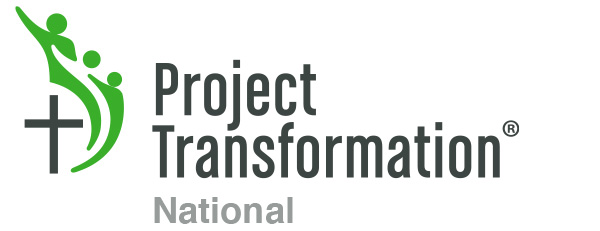Week 8: HOLISTIC DEVELOPMENT
This summer over 3,000 children and youth have been engaged in Project Transformation’s wide variety of activities in the 8-week program, from reading manipulatives, Bible stories, fine arts, physical education, mindfulness moments, science experiments, teambuilding games, and service projects. We believe social-emotional and spiritual learning are important foundations for cognitive and academic progression. Here’s how we build a culture of holistic development:
- We believe learning engages and develops the whole self: mind, body, and spirit
- We believe that every child and community has unique assets and the right to thrive
- We believe that spiritual formation is an essential part of development
- We develop literacy and social-emotional skills and knowledge for future success
- We seek to inspire a love of learning with a positive, fun-filled, experiential, and relational environment

Catch the vision of Project Transformation and cultivate mind, body and spirit!
LEARN: Check out our national partnership with Love In A Big World, a United Methodist Publishing House curriculum! We are so thrilled that all 6 chapters of Project Transformation have been utilizing this adaptable social-emotional curriculum built on leading research by CASEL.
 ACT: Donate to PT National today to support program quality in literacy and social-emotional programming at all 6 chapters across the country! We need YOU to help us foster a lifetime love of learning! Great programming at Project Transformation would not happen without your commitment to literacy, spiritual, and social-emotional development for children, your investment in leadership opportunities and vocational discernment for young adults, and your desire to see churches thrive!
ACT: Donate to PT National today to support program quality in literacy and social-emotional programming at all 6 chapters across the country! We need YOU to help us foster a lifetime love of learning! Great programming at Project Transformation would not happen without your commitment to literacy, spiritual, and social-emotional development for children, your investment in leadership opportunities and vocational discernment for young adults, and your desire to see churches thrive!
REFLECT: Light a candle and offer this prayer of illumination: “Almighty God, in you are hidden all the treasures of wisdom and knowledge. Open our eyes that we may see the wonders of your Word; and give us grace that we may clearly understand and freely choose the way of your wisdom; through Christ our Lord. Amen.”
In his letter to the Romans, Paul writes, “Do not conform to the pattern of this world, but be transformed by the renewing of your mind. Then you will be able to test and approve what God’s will is—his good, pleasing and perfect will.” (Romans 12:2) In the renewal of our mind, in learning—regardless of age—we seek wisdom and truth which come from God. French religious philosopher, social advocate, and teacher Simone Weil, in Waiting for God, writes about the process of learning and the utmost spiritual importance of paying attention:
“School children and students who love God should never say: ‘For my part I like mathematics’; ‘I like French’; ‘I like Greek.’ They should learn to like all subjects, because all of them develop that faculty of attention which, directed toward God, is the very substance of prayer…It does not even matter much whether we succeed in finding the solution or understanding the proof, although it is important to try really hard to do so. Never in any case whatever is a genuine effort of the attention is wasted. It always has its effect on the spiritual plane and in consequence on the lower one of the intelligence, for all spiritual light lightens the mind. Students must therefore work without any wish to gain good marks, to pass examinations, to win school successes; without any reference to their natural abilities and tastes; applying themselves equally to all their tasks, with the idea that each one will help to form in them the habit of that attention which is the substance of prayer. When we set out to do a piece of work, it is necessary to wish to do it correctly, because such a wish is indispensable in any true effort. Underlying this immediate objective, however, is our deep purpose should aim solely at increasing the power of attention with a view to prayer; as, when we write, we draw the shape of the letter on paper, not with a view to the shape, but with the view to the idea we want to express. To make this the sole and exclusive purpose of our studies is the first condition to be observed if we are to put them to the right use.”
Offer again the aforementioned prayer of illumination.




